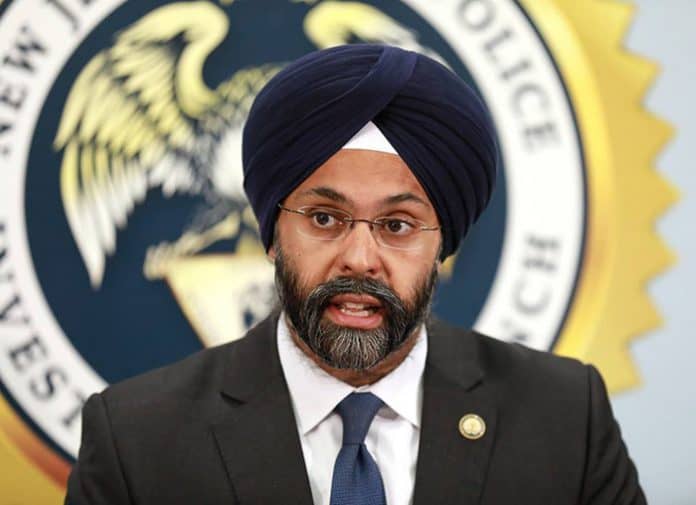
TRENTON – Attorney General Gurbir S. Grewal announced his plan to lead a coalition of 25 attorney generals opposing the Consumer Financial Protection Bureau’s (CFPB) plan to rescind key protections for borrowers of high-risk loans.
Alongside District of Columbia Attorney General Karl A. Racine, Grewal submitted comments to the CFPB opposing the repeal of parts of a rule adopted in 2017 that requires lenders to evaluate a borrower’s ability to repay a covered payday, vehicle-title, or other balloon payment loan before extending credit.
The CFPB developed the 2017 payday lending rule studies demonstrated how the payday and vehicle title lending industries abused consumers and trapped them in cycles of debt. Now, by rolling back these protections, the CFPB would once again allow lenders to prey on poor and desperate consumers without restriction.
“The CFPB is proposing to eliminate common sense rules that would protect hard-working New Jersey families from getting caught in a debt trap,” said Attorney General Grewal. “Fortunately, New Jersey has strong laws on the books to shield our residents from some of the worst abuses among payday loan and vehicle-title loan companies. But repealing the federal standards would make it harder for us to protect our residents’ pocketbooks—especially from bad conduct by out-of-state lenders.”
“We are calling on the CFPB to reconsider repealing these standards, which were intended to help prevent millions of people from becoming mired in the cycle of debt each year. Repealing these rules will cause foreseeable harm to individuals and families across the country,” said Acting Director of the Division of Consumer Affairs Paul R. Rodríguez. “There is no adequate reason, factual or legal, for this change. We will continue to work with our partners throughout the state to protect our residents, and encourage the CFPB to work with, rather than against, us in that effort.”
A requirement in the 2017 lending rules dictated that lenders assess whether the borrower can pay the loan back before making the loan in order to protect those customers who are not able to repay loans and instead end up re-borrowing, often multiple times, and getting further into debt.
The rules were also amended to protect borrowers who took out balloon-payment loans by putting their vehicle titles up as collateral. The agency’s 2017 rules required that covered lenders either first confirm a borrower’s ability to pay, or make a limited series of up to three loans, each smaller than the last.
These rules were made on the basis that it is “an unfair and abusive practice” to provide certain types of high-cost loans without first “reasonably determining that consumers have the ability to repay those loans according to their terms,” according to the CFPB.
In 2017, the CFPB found that lenders depend on many borrowers being unable to repay the loans according to their terms, causing them to either default or re-borrow, incurring new fees and costs each time. In fact, the CFPB found at the time that 90 percent of “all loan fees” came from “consumers who borrowed seven or more times” and 75 percent came from “consumers who borrowed 10 or more times.”
These findings were revisited earlier this year when CFPB asserted there was not enough evidence to support the agency’s earlier conclusions. The CFPB also proposed to reinterpret “unfair” and “abusive” practices, making it harder for the agency to protect consumers from other unfair or abusive practices in the future.
According to Attorney General Grewal’s comments to the CFPB, he is calling their plan “deeply flawed as a matter of law and public policy.”
Grewal and the other attorney generals involved cite that by repealing these protections, the CFPB now “misconstrues its own authority and obligations in a way that will leave consumers exposed” to the same kind of policies that led to the financial crisis a decade ago. They argue that rescinding the 2017 payday lending rules would make it much harder for states to protect their residents and enforce their own laws.
If the payday lending rules are rolled back, Grewal believes that lenders will have significant opportunities to escape state regulation.






